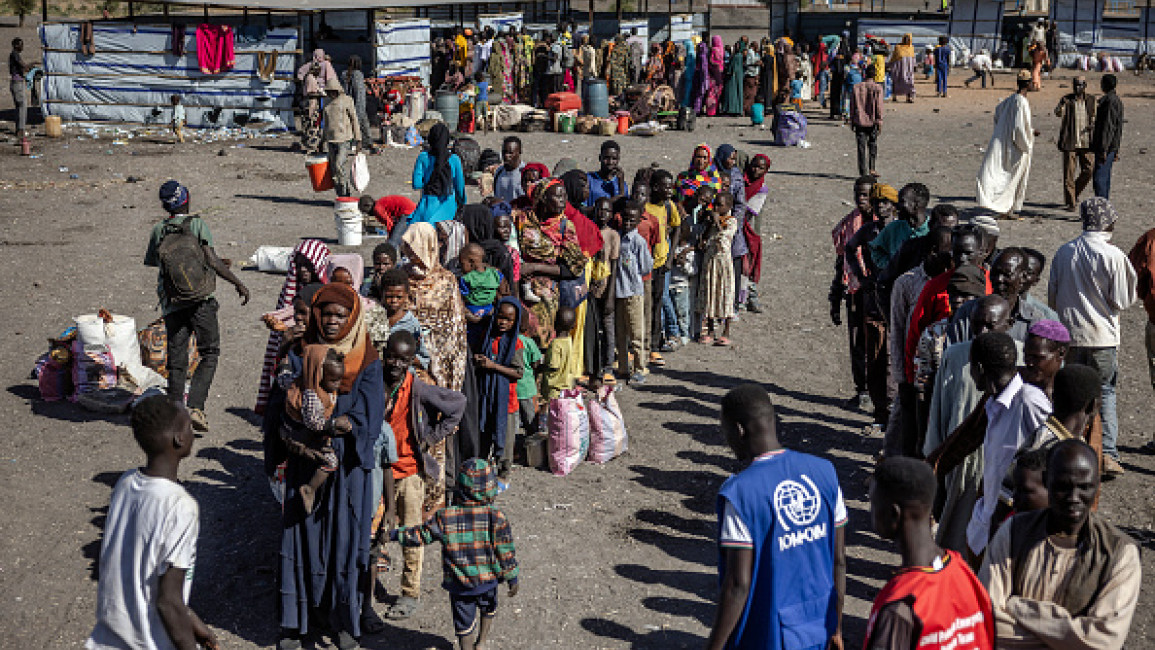Sudanese living in 'sheer terror': UN
Sudanese civilians are living in "sheer terror" due to the "ruthless, senseless conflict" that is upending the country and posing a risk to regional peace, the UN rights chief said Friday.
Volker Turk said the crisis in Sudan was marked by an insidious disregard for human life.
Fighting that broke out in April last year between Sudan's army chief Abdel Fattah al-Burhan and Mohamed Hamdan Daglo, his former deputy and commander of the paramilitary Rapid Support Forces. The conflict has killed thousands and sparked a humanitarian disaster.
Around 25 million people - more than half the population - need aid, including nearly 18 million who face acute food insecurity, according to UN numbers.
"The crisis in Sudan is a tragedy that appears to have slipped into the fog of global amnesia," Turk told the UN Human Rights Council.
He called it a "ruthless, senseless conflict" in which thousands have been killed, "seemingly without remorse".
The warring parties "have manufactured a climate of sheer terror, forcing millions to flee", he said.
Turk said both sides had consistently acted with impunity for multiple rights violations, while any talks towards peace have stagnated.
"Sudan has become a living nightmare," he said.
A report before the UN rights council highlights gross violations and abuses of international human rights law committed by the warring parties between April and December.
It also details serious violations of international humanitarian law, many of which may amount to war crimes, or other atrocity crimes.
Turk said that at least 14,600 people had been killed and 26,000 others injured, though the true toll would be much higher.
Besides heavy artillery, "sexual violence as a weapon of war, including rape, has been a defining - and despicable - characteristic of this crisis", said Turk.
The UN high commissioner for human rights said he was deeply worried for thousands of civilians held in arbitrary detention.
And he was troubled by reports of civilians mobilising, fearing it could increase the chances of Sudan sliding into a spiral of protracted civil war.
In-depth: Sudan's notorious RSF paramilitary has reportedly returned to its early practice of recruiting child soldiers to fight in its ranks.
— The New Arab (@The_NewArab) February 29, 2024
Are the RSF recruiting children to fight in Sudan's war? https://t.co/nxbUBep9CQ
He noted that 80 percent of hospitals were out of service, while the apparently deliberate denial of safe access for humanitarian agencies could amount to a war crime.
Turk said the destruction hospitals and schools would have lasting effects on access to health and education.
"With more than eight million forced to flee within Sudan and to neighbouring countries, this crisis is upending the country and profoundly threatening peace, security and humanitarian conditions throughout the entire region," he added.
Turk urged countries to increase donations to the humanitarian response plan for Sudan, which is currently just four percent funded.
He lamented the lack of effective dialogue towards ending the conflict.
"The fighting parties must agree to return to peace, without delay," Turk said.
"And... the international community must refocus its attention on this deplorable crisis before it descends even further into chaos."





 Follow the Middle East's top stories in English at The New Arab on Google News
Follow the Middle East's top stories in English at The New Arab on Google News


